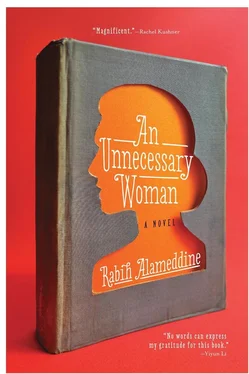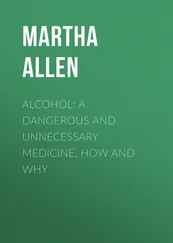Of course, by avoiding my reflection, I end up ignoring Rilke’s exquisite admonishment:
Though the reflection in the pool
Often swims before our eyes:
Know the image.
How lovely that is!
I’ll move more gracefully, or less awkwardly, in a few minutes, once my muscles and joints have warmed up.
I flick on the ceiling lights in the kitchen, boil water for my tea. As the stovetop flame wavers livid and blue, the bulbs in the ceiling hiccup once, twice, and die, as does the one streetlight outside. The government electricity is down again. The building’s generator won’t be turned on until at least six A.M., until someone else wakes up, most likely Marie-Thérèse, who calls for one of her roaming cats every morning, which wakes Fadia, who’ll turn on the generator.
I’ll wait in the dark for the lights to come on. I’m used to it.
Without power, night is night once more, not the cheap imitation that passes for night in a modern city. Without electricity, night is the deep world of darkness once more, the mystery we dread.
Darkness visible.
My city seems to be regressing to an earlier age. Barely functions.
A hospital in town recently had one of its wings remodeled to what they call “super ultra deluxe,” which means that you have to hock your jewelry just to breathe the air inside. The floors are parquet, the pillows down, and all the technology is the latest, including bathrooms with toilets that use motion detectors to flush. What no one took into account is that the detectors go berserk and have to be recalibrated every time the electricity cuts off and the generators take over. Since it’s Beirut, this has to be done twice a day if not more. The hospital had to hire an in-house toilet calibrator.
Darkness risible.
As I sit in the dark kitchen sipping darker tea, I think in a flash of an evening long ago, when I was still a child — must have been winter as it is now; it was dark early. The meal, simple and barely enough to feed the family, waited impatiently on a big brass tray sitting atop a round burlap ottoman. The apartment wasn’t large enough for a dining table and six children. My mother refused to feed us until the return of her husband, a tailor’s assistant in a downtown shop, as he remained until he passed away. The moment my mother heard him turn the key, she stood up. The electricity went out, plunging the room into blackness and causing my mother unspeakable distress, for her husband might injure himself entering a dark room. As she ran to greet him, warn him, and guide him, her leg knocked the tray, which flipped and banged my half brother the eldest on the head; he’d used that instant cover of darkness to sneak a slice of white cheese. Food landed all about us like shrapnel.
“Don’t move,” warned my mother, “don’t you dare move.”
She tottered blindly into the kitchen, returned with a fluttering kerosene lamp. We remained stock-still, but entering the apartment, her husband stepped in the spilled olive oil. When he moved his shoe away, we could see a footprint stain in the carpet. All of us knelt and began to pick up food — cheese, black olives, radishes, sliced tomatoes, white onions — only the olive oil was unsalvageable. We sat around the tray and ate our dinner silently. All evening, my mother’s cheeks blushed a deep red that could be noticed even in the low light of the lamp.
My books show me what it’s like to live in a reliable country where you flick on a switch and a bulb is guaranteed to shine and remain on, where you know that cars will stop at red lights and those traffic lights will not cease working a couple of times a day. How does it feel when a plumber shows up at the designated time, when he shows up at all? How does it feel to assume that when someone says she’ll do something by a certain date, she in fact does it?
Compared to the Middle East, William Burroughs’s world or Gabriel García Márquez’s Macondo is more predictable. Dickens’s Londoners are more trustworthy than the Lebanese. Beirut and its denizens are famously and infamously unpredictable. Every day is an adventure. This unsteadiness makes us feel a shudder of excitement, of danger, as well as a deadweight of frustration. The spine tingles momentarily and the heart sinks.
When trains run on time (when trains run, period), when a dial tone sounds as soon as you pick up a receiver, does life become too predictable? With this essential reliability, are Germans bored? Does that explain The Magic Mountain ?
Is life less thrilling if your neighbors are rational, if they don’t bomb your power stations whenever they feel you need to be admonished? Is it less rousing if they don’t rattle your windows and nerves with indiscriminate sonic booms just because they can?
When things turn out as you expect more often than not, do you feel more in control of your destiny? Do you take more responsibility for your life? If that’s the case, why do Americans always behave as if they’re victims?
Hear me on this for a moment. I wake up every morning not knowing whether I’ll be able to switch on the lights. When my toilet broke down last year, I had to set up three appointments with three plumbers because the first two didn’t show and the third appeared four hours late. Rarely can I walk the same path from point A to point B, say from apartment to supermarket, for more than a month. I constantly have to adjust my walking maps; any of a multitude of minor politicians will block off entire neighborhoods because one day they decide they’re important enough to feel threatened. Life in Beirut is much too random. I can’t force myself to believe I’m in charge of much of my life.
Does reliability reinforce your illusion of control? If so, I wonder if in developed countries (I won’t use the hateful term civilized ), the treacherous, illusion-crushing process of aging is more difficult to bear.
Am I having an easier time than women my age in London?
Marie-Thérèse calls for her cat to come home, the daily aubade. The uncaring, intricate world begins to rouse. In time the curtain edges will grow light.
“Maysoura!” Marie-Thérèse’s voice has risen in volume since her husband passed away. “Maysoura!”
I don’t understand why she allows her two cats to roam the streets of our neighborhood. Beirut isn’t a pet-friendly city. Like my mother, Marie-Thérèse loves cats. However, my mother never owned a cat; she showered her love on the city’s ferals.
The generator comes on with its soft hum. Fadia must have awakened. I don’t turn the light on, remain in the not-quite-as-dark.
I think of Brodsky:
I sit by the window. The dishes are done.
I was happy here. But I won’t be again.
The sun rises, and the kitchen takes shape, revealing its details. The awakening of my city is more beautiful to my eyes, and to my ears, than the breaking of dawn in some bucolic valley or sparsely populated island paradise, not that I’ve actually been to a bucolic valley or an island paradise. In my city, the sun multiplies its effects on the myriad of windows and glass in colorful reflections that make each morning distinct. The faint light creeps through the window, curious to see what is happening in my kitchen. It falls across my face and falters. I make myself stand up. I sway a little, lean on the wine-red and urine-yellow abomination of a breakfast table that my husband brought with him when we were married and left when he left. I shake the loose folds of my robe de chambre. Dust motes hang thick in the air. The kitchen has two windows on adjacent walls. A spider with shockingly long front legs busies herself with prey caught in her web. All that remains is a wisp of gossamer with striated veins. The spider chose the wrong window; her home will be washed away with the first rains. I stretch on my toes, draw back the short drapes of the second window, and unveil more morning light. I allow brightness to flood the kitchen from both sides. I slide open the pane for the first time in a couple of days. This window looks onto the outdoor stairwell, and my neighbors are able to quench their curiosity as they click-clack up and down. A slight breath of air makes the stagnant motes waver; a handful of sunlight kindles them golden and luminous.
Читать дальше












